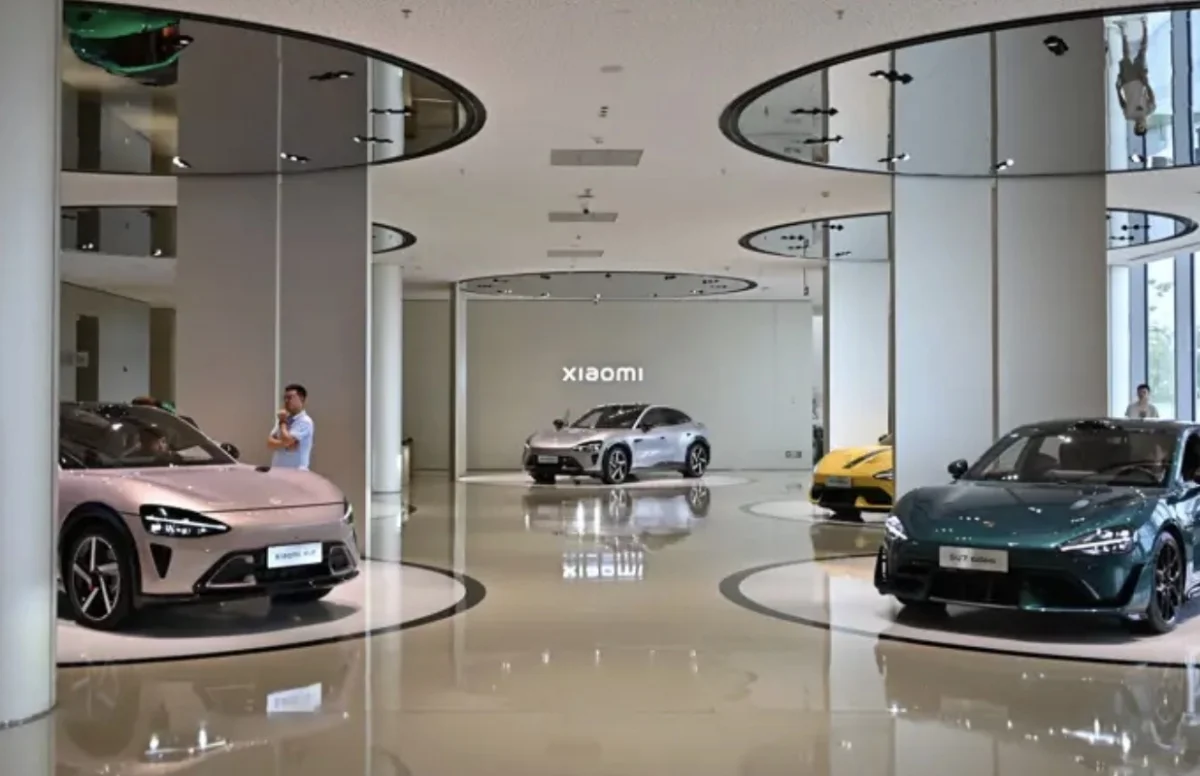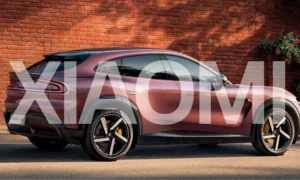Xiaomi YU7 Delays: 14-Month Wait Times & Solutions
Xiaomi YU7 Electric Vehicle Delivery Delays: Causes, Consequences, and Solutions
The electric vehicle (EV) industry is booming, with brands like Xiaomi making a significant splash. However, the massive success of Xiaomi’s new electric SUV, the YU7, has brought a considerable challenge: delivery wait times stretching up to 14 months, leaving customers frustrated. This article delves into the causes of these delays, their consequences for buyers and the industry, and potential solutions, focusing specifically on Xiaomi’s production in the EV sector.

Causes of Xiaomi YU7 Delivery Delays
The explosive demand for the Xiaomi YU7, launched on June 26th, 2025, far outstrips Xiaomi’s current production capacity. The initial response was phenomenal, with El Carro Colombiano reporting 289,000 reservations within an hour, 200,000 of which were finalized in the first three minutes. This staggering demand, reaching 240,000 orders in the first 18 hours, presents a significant production bottleneck. With the Beijing factory currently operating at a capacity of 28,000 units per month, the backlog equates to more than nine months of production at full capacity.
Exceptional Demand and Limited Production Capacity:
The sheer volume of pre-orders overwhelmed Xiaomi’s manufacturing capabilities. This massive surge in demand instantly exposed the limitations of their existing infrastructure.
Supply Chain Bottlenecks:
EV production relies heavily on key components like lithium batteries, semiconductors, and rare earth minerals. Global availability remains limited, and companies like CATL, the battery supplier for the YU7, face significant demand, leading to potential delays in component delivery. Further complicating matters, the fluctuating price of lithium, as highlighted by Shanghai Metal Market, impacts both production costs and planning.
Quality and Testing Issues:
Electric vehicles demand rigorous safety and quality testing, especially in a fiercely competitive market like China. A recent incident with the YU7 Max, where brakes reached 619°C during track tests resulting in a brief fire, underscores the challenges Xiaomi faces in ensuring its vehicles meet premium standards. Such events necessitate production halts to adjust processes and address safety concerns.
Lack of Transparency in Delivery Times:
Over 400 complaints have been registered on Sina’s Black Cat platform due to the lack of clear information about YU7 delivery timelines. Buyers were required to pay a non-refundable deposit of 5,000 yuan (approximately $697 USD) without knowing the wait times, which range from 38 to 62 weeks depending on the configuration. This communication breakdown significantly amplified customer frustration.

Consequences of the Delays
The YU7’s delivery delays have created a ripple effect across Xiaomi’s EV operations and reputation.
Customer Dissatisfaction and Loss of Trust:
The protracted waiting times have fueled significant customer discontent, with buyers considering order cancellations or even legal action, according to El Carro Colombiano. Xiaomi’s reputation for reliability is at stake, particularly as delays might cause customers to miss expiring EV tax exemptions by the end of 2025, adding roughly 10,000 yuan to the final cost.
Competitive Advantage for Rivals:
Competitors like Zeekr, Nio, and IM Motors are capitalizing on Xiaomi’s setbacks, offering refunds to frustrated customers. This intensifies competition in China’s saturated EV market, where Tesla and BYD hold dominant positions. Failure to resolve these issues could result in significant market share loss for Xiaomi.
Financial Impact:
Despite the SU7’s success, exceeding 200,000 deliveries in under a year, Xiaomi’s automotive division reported losses of $800 million in 2024. YU7 delays could exacerbate these losses if customers cancel orders or if production costs rise due to urgent adjustments.
Delayed International Expansion:
Xiaomi has reiterated its commitment to not exporting vehicles until 2027 due to domestic demand. The YU7 delays reinforce this decision, as the company prioritizes fulfilling domestic orders, potentially delaying its global competition with Tesla and Porsche.
Proposed Solutions
Xiaomi needs to address these issues proactively to regain customer trust and secure its position in the EV market.
Increased Production Capacity:
Xiaomi is working on Phase 2 of its Beijing factory, expected to be ready by Summer 2025, doubling annual capacity to 300,000 units. CEO Lei Jun has announced efforts to accelerate production, including supply chain optimization and increased plant efficiency.
Improved Customer Communication:
To mitigate complaints, Xiaomi offered limited windows (like July 6th-7th, 2025) for buyers to modify their orders. Lei Jun has also used platforms like Weibo and Douyin to update customers, promising greater transparency. Proactive notifications within the Xiaomi Auto app could further reduce frustration.
Diversification of Suppliers:
To prevent bottlenecks, Xiaomi could explore agreements with multiple battery and semiconductor suppliers, reducing reliance on CATL and other key players. This would require substantial investment but could stabilize long-term production.
Optimization of Quality Processes:
Following the YU7 Max track incident, Xiaomi must invest in more rigorous testing and higher-quality materials, such as brakes designed for extreme conditions. This will not only enhance safety but also accelerate production by reducing last-minute adjustments.
Evergreen Content and Updates:
To maintain consumer interest during wait times, Xiaomi could release regular updates on production progress and offer interactive content, such as virtual factory tours or YU7 test drives. This keeps customers engaged and minimizes cancellations.
Xiaomi’s Context in Electric Vehicle Production
Xiaomi has demonstrated a serious commitment to EVs, investing $3.3 billion between 2021 and 2025, with plans to spend another $4.2 billion in 2025. Its SU7 surpassed the Tesla Model 3 in monthly sales in China as early as December 2024, and the YU7 aims to challenge the Model Y with a competitive price (253,500 yuan for the standard version). However, the company faces the challenge of rapidly scaling from scratch in a saturated market where brands like BYD and Tesla have years of experience.
Despite initial losses, Xiaomi’s automotive business accounts for 10% of its revenue and is projected to reach 20% in 2025, according to Huatai Securities. The company has prioritized the Chinese market, but its success hinges on resolving production issues and maintaining consumer confidence.
Looking Ahead: Navigating the Challenges
The Xiaomi YU7 delivery delays highlight the challenges of a rapidly expanding EV industry where demand outpaces production capacity. While the initial response to the YU7 was overwhelmingly positive, the subsequent delays underscore the importance of strategic planning, robust supply chains, and transparent communication. Xiaomi’s ability to overcome these hurdles will be crucial in determining its ability to compete with established EV giants. The future success of Xiaomi in the EV market depends on effectively addressing these challenges and delivering on its promises. Their proactive approach, though facing setbacks, signals a commitment to innovation and growth in this dynamic sector.







